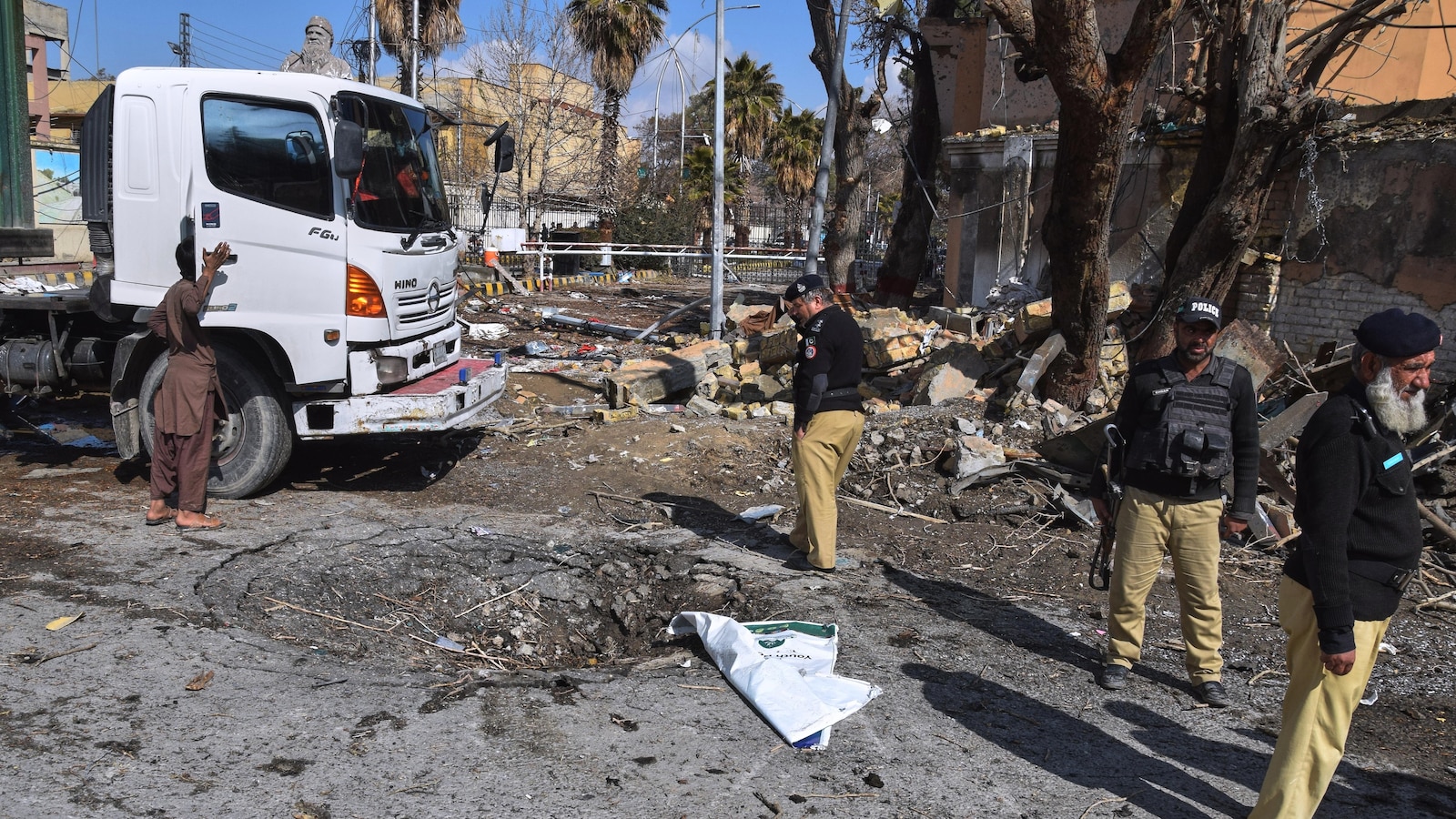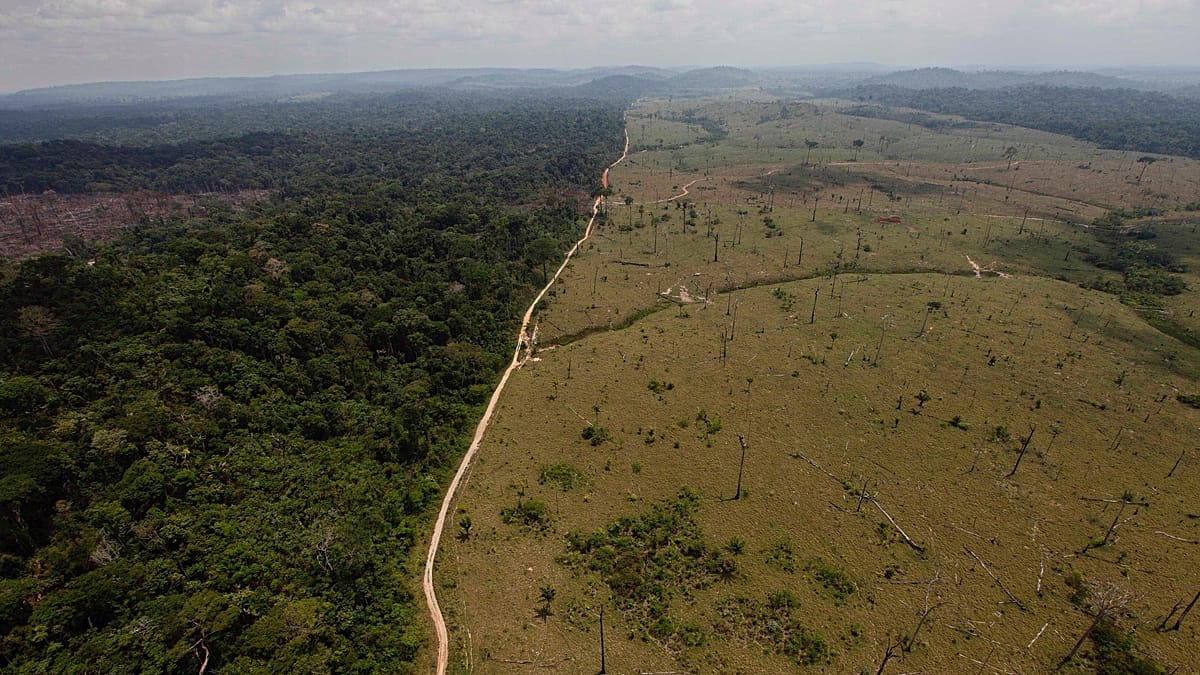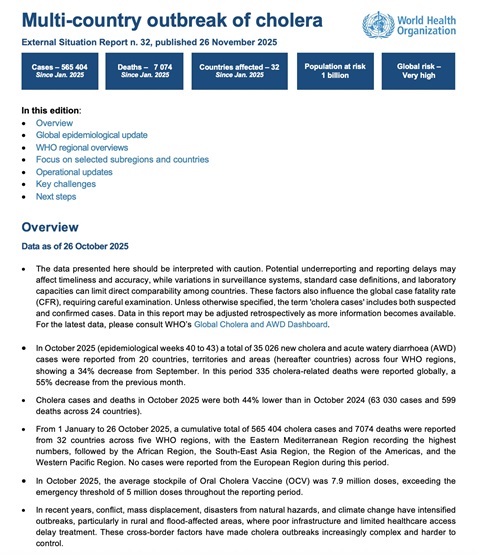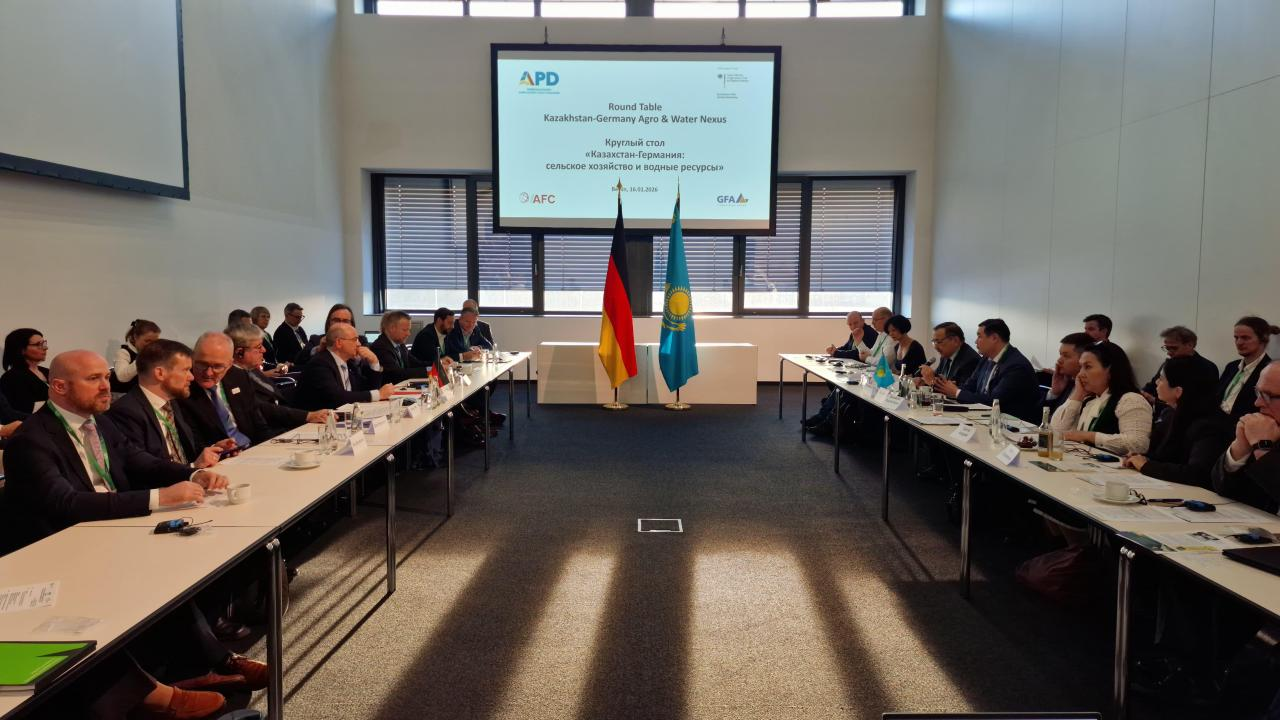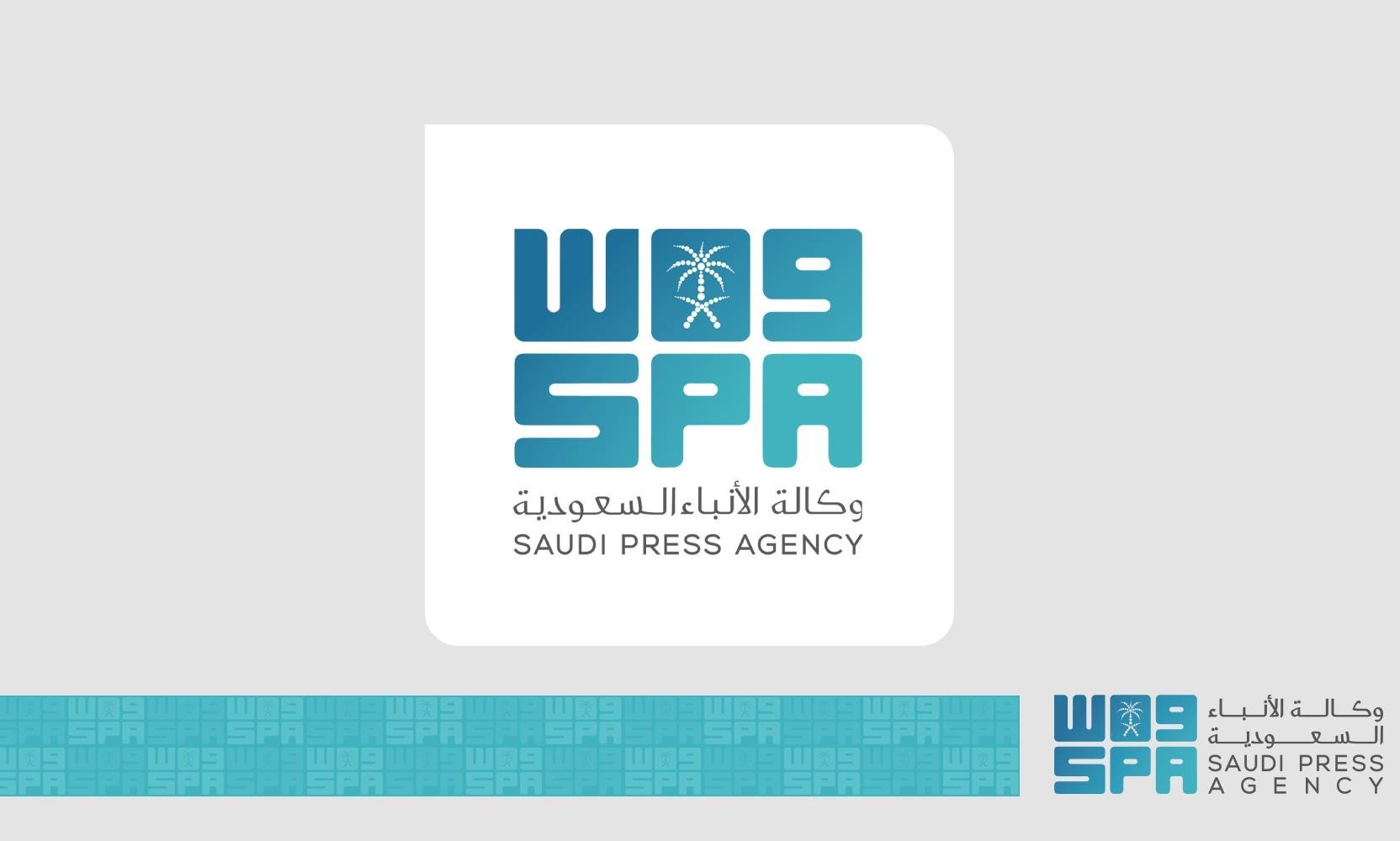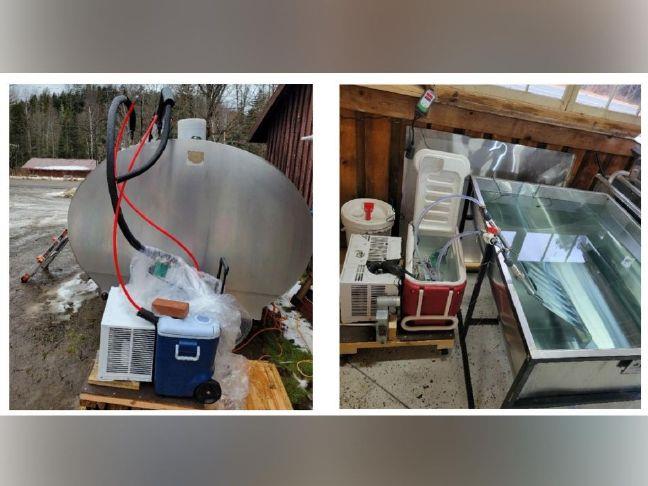Global Food Week 2025 Opens in Abu Dhabi, Showcasing Innovation and Sustainability in Food and Agriculture – Food & Beverage Magazine
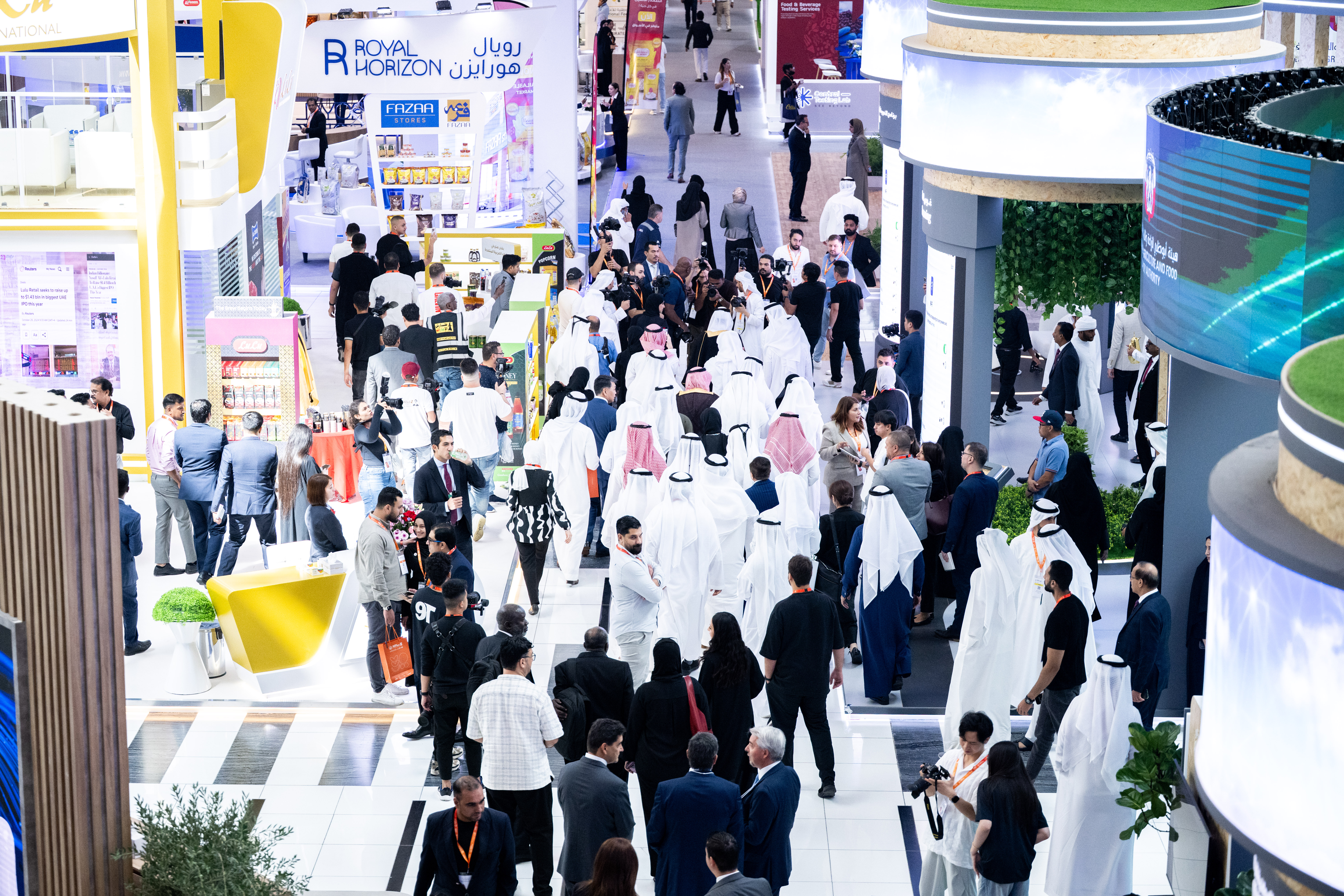
Global Food Week 2025: A Strategic Report on Advancing Sustainable Development Goals
Introduction: A Global Platform for Sustainable Food Systems
Global Food Week 2025 commenced at the Abu Dhabi National Exhibition Centre (ADNEC), establishing a critical platform for international dialogue on sustainable food systems. The event, held under the patronage of H.H. Sheikh Mansour bin Zayed Al Nahyan, aims to address global food challenges through innovation and collaboration, directly contributing to the United Nations’ Sustainable Development Goals (SDGs), particularly SDG 2 (Zero Hunger) and SDG 17 (Partnerships for the Goals).
Event Growth and Economic Impact: Fostering SDG 8 and SDG 17
Key Participation Metrics
The 2025 edition demonstrates significant growth, indicating strong industry momentum towards sustainable transformation. This expansion supports SDG 8 (Decent Work and Economic Growth) by creating opportunities within the global food and beverage sector.
- Exhibition space increased by 15% to 33,542 square metres.
- Participating companies grew by 9%, reaching 2,070 entities.
- The event attracted participants from 75 countries, fostering global partnerships in line with SDG 17.
- A total of 543 companies and brands are participating for the first time, highlighting the event’s role in fostering innovation.
Driving Local Economic Growth (SDG 8)
A notable 1,055 national companies and brands from the UAE are participating, constituting 51% of the total. This strong domestic presence underscores the UAE’s commitment to building a resilient local food sector and diversifying its economy, a key target of SDG 8.
Core Thematic Focus: Integrating Sustainability, Technology, and Policy
Leadership Vision for Climate Action and Food Security (SDG 2 & SDG 13)
H.E. Dr Amna bint Abdullah Al Dahak, Minister of Climate Change and Environment, emphasized that the event translates the UAE’s vision of placing sustainable food security at the center of national and global agendas. This aligns directly with SDG 2 (Zero Hunger) and SDG 13 (Climate Action).
- The Minister highlighted the imperative of applying sustainable agricultural and food practices to increase production while adapting to climate change.
- The event’s focus is on sustainability as a continuous practice driven by innovation and technology, not merely a slogan.
- New features like the AgriTech Forum and the Agricultural Investment Forum are designed to turn this vision into tangible reality.
The Water-Energy-Food Nexus: A Holistic Approach to SDG 6 and SDG 7
H.E. Dr Abdullah Humaid Al Jarwan, Chairman of the Abu Dhabi Department of Energy, stressed the interconnectedness of food, water, and energy security. The Department of Energy’s strategy reflects an integrated approach to resource management, crucial for achieving SDG 6 (Clean Water and Sanitation) and SDG 7 (Affordable and Clean Energy).
- Supply Security: Ensuring a stable and reliable supply of water and energy for food production.
- Usage Efficiency: Implementing modern irrigation and water reuse systems to minimize waste.
- Economic Viability: Developing sustainable economic models for resource management.
The AD.WE platform, which uses artificial intelligence to optimize farm water usage, exemplifies the use of technology to advance SDG 6, having already achieved water savings of up to 10%.
Strategic Platforms for Innovation and Investment
Accelerating Industry Transformation (SDG 9)
Global Food Week 2025 features several platforms designed to drive innovation and build resilient infrastructure, directly supporting SDG 9 (Industry, Innovation, and Infrastructure).
- Abu Dhabi International Food Exhibition (ADIFE): Reinforces Abu Dhabi’s role in advancing the food sector with sustainable solutions.
- AgriTech Forum: The region’s first dedicated platform for agri-food startups, fostering technological advancements.
- Alternative Proteins Pavilion: Showcases innovative solutions like lab-grown meat to ensure future food production is sustainable and resource-efficient, contributing to SDG 12 (Responsible Consumption and Production).
- Farmers’ Majlis: An interactive platform connecting producers with investors, enhancing supply chain efficiency and supporting small-scale farmers, a key target of SDG 2.
Investment in Agri-Food and Water Abundance (SDG 8 & SDG 9)
H.E. Badr Salim Sultan Al-Olama of the Abu Dhabi Investment Office (ADIO) highlighted the AgriFood Growth and Water Abundance (AGWA) cluster as a driver of innovation for food security and climate resilience. The Protein Alternatives (PALT) event connects investors with innovators to build more efficient and sustainable food systems, fostering economic growth (SDG 8) and technological advancement (SDG 9).
Cultural Heritage and Sustainable Production (SDG 12)
The Abu Dhabi Date Palm Exhibition
Running concurrently, the 11th Abu Dhabi Date Palm Exhibition promotes the date sector, a resilient and culturally significant crop. This initiative supports SDG 12 (Responsible Consumption and Production) by:
- Preserving agricultural heritage while fostering innovation in sustainable cultivation.
- Serving as a regional gateway for marketing and exporting dates, connecting local producers with international buyers.
- Facilitating long-term supply agreements that ensure stable and sustainable production chains.
Conclusion: A Blueprint for Global Food System Transformation
Global Food Week 2025 serves as an international platform that unites experts, innovators, and policymakers to develop collaborative solutions for a sustainable future. By integrating policy, technology, investment, and cultural heritage, the event provides a comprehensive framework for addressing global food challenges. Its focus on multi-stakeholder collaboration (SDG 17) positions it as a vital catalyst for achieving Zero Hunger (SDG 2), promoting responsible production (SDG 12), and taking urgent action on climate change (SDG 13).
Analysis of Sustainable Development Goals in the Article
1. Which SDGs are addressed or connected to the issues highlighted in the article?
-
SDG 2: Zero Hunger
- The article’s central theme is “sustainable food systems” and “global food security,” which directly aligns with SDG 2’s goal of ending hunger and promoting sustainable agriculture. The event, Global Food Week, is dedicated to increasing food production through sustainable practices.
-
SDG 6: Clean Water and Sanitation
- The article explicitly discusses the interconnectedness of food and water security. It details Abu Dhabi’s comprehensive water management strategy, focusing on supply security, usage efficiency, and the implementation of technologies like modern irrigation and water reuse systems.
-
SDG 7: Affordable and Clean Energy
- The text highlights the “interconnected and integrated system” of water, energy, and food. The Chairman of the Abu Dhabi Department of Energy emphasizes the need for unified governance and holistic planning across these sectors, connecting the event’s goals to energy security.
-
SDG 8: Decent Work and Economic Growth
- The event is presented as a driver of economic diversification and growth. The article notes the “record-breaking growth” of the event, the significant participation of 1,055 national companies, and the generation of AED 6.2 billion in business deals in the previous edition, all contributing to economic activity.
-
SDG 9: Industry, Innovation, and Infrastructure
- Innovation is a core focus, with mentions of an “AgriTech Forum,” an “Alternative Proteins Pavilion,” “lab-grown meat technologies,” and the use of artificial intelligence (AD.WE platform) to improve agricultural efficiency. These initiatives aim to upgrade the technological capabilities of the agri-food industry.
-
SDG 12: Responsible Consumption and Production
- The emphasis on “sustainable food systems,” reducing waste through “modern irrigation networks,” and implementing “water reuse systems” directly relates to achieving sustainable management and efficient use of natural resources.
-
SDG 13: Climate Action
- The article addresses the need to adapt to “overlapping climate and food challenges” and “climate change effects.” It highlights initiatives aimed at enhancing “climate resilience” and promoting “resilient crops” like the date palm.
-
SDG 17: Partnerships for the Goals
- The entire event is a manifestation of this goal, described as a “pivotal moment for international dialogue” and an “international platform” that brings together “government entities, private sector innovators, international organizations, and local producers” from 75 countries to foster collaboration and strengthen international cooperation.
2. What specific targets under those SDGs can be identified based on the article’s content?
-
Target 2.4: Ensure sustainable food production systems and implement resilient agricultural practices.
- The article directly supports this target by focusing on “sustainable food systems,” “resilient crops” (date palm), and the “application of agricultural and food practices… to increase food production” while adapting to climate change.
-
Target 2.a: Increase investment in rural infrastructure, agricultural research and extension services, technology development.
- The creation of platforms like the “Agricultural Investment Forum” and the “AgriTech Forum” for startups is a clear effort to increase investment and technology development in the agricultural sector.
-
Target 6.4: Substantially increase water-use efficiency across all sectors.
- This target is addressed through the “comprehensive water management strategy” which includes “modern irrigation networks that reduce waste and enhance efficiency,” “water reuse systems,” and an AI platform that has already achieved significant water savings.
-
Target 9.5: Enhance scientific research, upgrade the technological capabilities of industrial sectors… encouraging innovation.
- The article highlights the promotion of innovation through the “AgriTech Forum,” the “Alternative Proteins Pavilion” showcasing “lab-grown meat,” and the use of “artificial intelligence” in agriculture, all aimed at upgrading the sector’s technological capabilities.
-
Target 13.1: Strengthen resilience and adaptive capacity to climate-related hazards.
- The discussion on “adapting to climate change effects” and the goal of the AGWA cluster to enhance “food security and climate resilience” align directly with this target.
-
Target 17.16: Enhance the Global Partnership for Sustainable Development, complemented by multi-stakeholder partnerships.
- Global Food Week is described as an “international platform” and a “convergence of government entities, private sector innovators, international organizations, and local producers,” which perfectly exemplifies a multi-stakeholder partnership to address global challenges.
3. Are there any indicators mentioned or implied in the article that can be used to measure progress towards the identified targets?
-
Quantitative Indicators:
- Water Savings: The article explicitly states that the AD.WE platform achieves “water savings of up to 10%,” a direct indicator for Target 6.4.
- Event Growth Metrics: The “15% expansion in exhibition space,” “9% increase in participating companies,” and the total of “2,070 entities” from “75 countries” serve as indicators of the growing scale of partnerships (Target 17.16) and investment interest (Target 2.a).
- Economic Impact: The “AED 6.2 billion in business deals” from the previous event is a clear indicator of economic activity and investment being mobilized (Target 2.a and SDG 8).
- Participation Numbers: The involvement of “1,055 national companies” and “543 companies… participating for the first time” indicates growth in local industry and innovation (SDG 8 and SDG 9).
-
Qualitative/Implied Indicators:
- Creation of Innovation Platforms: The establishment of the “AgriTech Forum,” “Agricultural Investment Forum,” and “Alternative Proteins Pavilion” are indicators of a commitment to fostering innovation and investment (Target 2.a and 9.5).
- Implementation of Policies and Technologies: The launch of a “comprehensive water management strategy” and the deployment of “mobile desalination units,” “modern irrigation networks,” and “water reuse systems” are indicators of action towards sustainable resource management (Target 6.4 and 12.2).
- High-Level Commitment: The event’s patronage by H.H. Sheikh Mansour bin Zayed Al Nahyan and the participation of ministers and international experts indicate strong political will and institutional support for achieving food and water security goals.
4. Table of SDGs, Targets, and Indicators
| SDGs | Targets | Indicators Identified in the Article |
|---|---|---|
| SDG 2: Zero Hunger | 2.4: Ensure sustainable food production systems. 2.a: Increase investment in agricultural research and technology. |
– Creation of platforms like the AgriTech Forum and Agricultural Investment Forum. – Value of business deals generated (AED 6.2 billion). – Focus on resilient crops (date palm). |
| SDG 6: Clean Water and Sanitation | 6.4: Substantially increase water-use efficiency. | – Water savings of up to 10% achieved by the AD.WE platform. – Implementation of modern irrigation networks and water reuse systems. – Launch of a comprehensive water management strategy. |
| SDG 9: Industry, Innovation, and Infrastructure | 9.5: Enhance scientific research and upgrade technological capabilities. | – Establishment of the AgriTech Forum and Alternative Proteins Pavilion. – Showcase of cutting-edge technologies like lab-grown meat and AI platforms. – Number of first-time participating companies (543). |
| SDG 13: Climate Action | 13.1: Strengthen resilience and adaptive capacity to climate-related hazards. | – Focus on enhancing “climate resilience” through the AGWA cluster. – Promotion of “resilient crops” to adapt to climate change effects. |
| SDG 17: Partnerships for the Goals | 17.16: Enhance the Global Partnership for Sustainable Development. | – Number of participating countries (75). – Number of participating companies (2,070). – Convergence of government, private sector, and international organizations. |
Source: fb101.com
What is Your Reaction?
 Like
0
Like
0
 Dislike
0
Dislike
0
 Love
0
Love
0
 Funny
0
Funny
0
 Angry
0
Angry
0
 Sad
0
Sad
0
 Wow
0
Wow
0



















